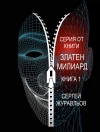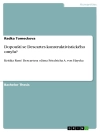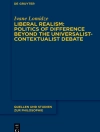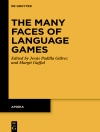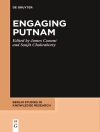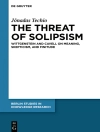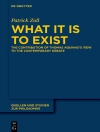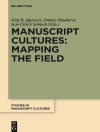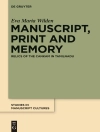This book formulates a new theory of subjectivity in the context of the claimed “death of the subject” in the post-modern and post-human age. The new theory is developed against the conception of the subject as a transcendental ego whose constitutive roles, recognition, and representation lead to the objectivization and totalization of the world and denial of its inner infinity and heterogeneity. Critically scrutinizing ideas from Bergson, James, Husserl, Heidegger, Derrida, Zen Buddhism, and Chinese Zhuangzi, and through an analysis of time and temporality, this book advances a number of new concepts, including “primal sensibility” and “pure experience, ” and proposes a porous structure of subjectivity with an ex-egological and ex-subjective zone that allows nothingness and absence to ground presence. Such a theory of subjectivity provides the basis for an understanding of thinking as imagination and self-identity as narrative presentation in the intersubjective world.
Cuprins
1. Introduction.- 2. Time and Existence.- 3. Space and Time.- 4. Time and Recognition.- 5. Primal Sensibility.- 6. Pure Experience .- 7. Primal Sensibility and The Other Time .- 8. Timelessness.- 9. Temporality and Existent.- 10. Being and Nothingness? Infinity and the Porous Existent.- 11. Death and the Beginning, or the Infinite Time.- 12. Transcendence and Subjectivity.- 13. Spatiality, Temporality, and Thinking.- 14. “Substance” and Imagination.- 15. On Reason and Rationality.- 16. Kant’s Imagination and Time.- 17. Self-identity and Narrative Imagination.- 18. Existent and Self-identity.- 19. “Who are you?” and “Who am I?” Self-Identity as Narrative Presentation.
Despre autor
Guoping Zhao is Professor and Research Fellow at Oklahoma State University, USA.


